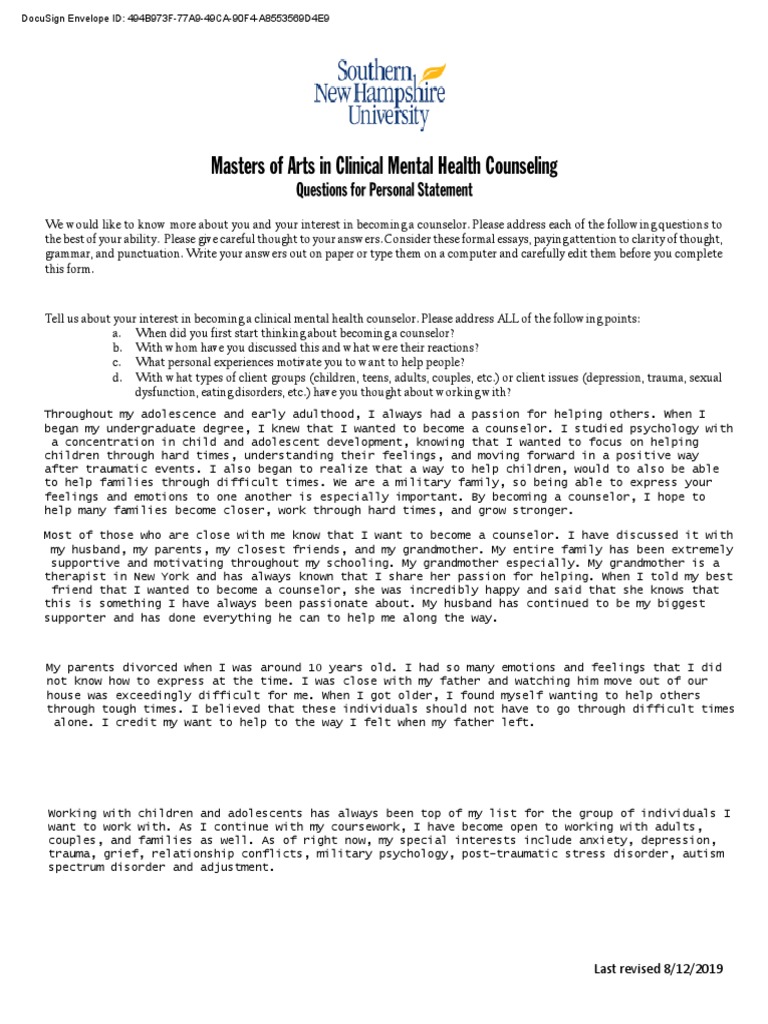5 Tips MA Counseling Psychology

The field of Mental Health Counseling, also known as MA Counseling Psychology, is a vital and rewarding career path that involves working with individuals, groups, and communities to promote mental health and well-being. As a professional in this field, you will have the opportunity to make a positive impact on people’s lives, helping them to navigate challenges and achieve their goals. Here are five tips for those interested in pursuing a career in MA Counseling Psychology:
Firstly, develop a strong foundation in psychology and counseling theories. A comprehensive understanding of human behavior, developmental theories, and counseling models is essential for effective practice. Familiarize yourself with various therapeutic approaches, such as cognitive-behavioral therapy, psychodynamic therapy, and humanistic therapy, to develop a versatile skill set. By grasping the underlying principles of counseling, you will be better equipped to assess clients’ needs, design personalized treatment plans, and facilitate meaningful change.
Secondly, cultivate excellent communication and interpersonal skills. Building trust and rapport with clients is crucial in counseling relationships. Practice active listening, empathy, and effective verbal and non-verbal communication to create a safe and supportive environment. Be aware of your own biases, emotions, and limitations to maintain a professional and objective stance. Furthermore, develop your ability to work with diverse populations, including individuals from various cultural backgrounds, ages, and identities, to enhance your cultural competence and sensitivity.
Thirdly, gain practical experience through internships and volunteer work. Hands-on experience is invaluable in counseling psychology, as it allows you to apply theoretical knowledge in real-world settings. Seek out opportunities to work with experienced counselors, participate in group therapy sessions, and engage in community outreach programs. These experiences will not only hone your clinical skills but also help you develop a sense of professional identity and purpose. By working with diverse client populations, you will gain a deeper understanding of the complexities of human experience and develop a more nuanced approach to counseling.
Fourthly, stay current with industry developments and best practices. The field of counseling psychology is constantly evolving, with new research, technologies, and treatment approaches emerging regularly. Commit to ongoing professional development by attending workshops, conferences, and online courses to stay updated on the latest advancements. Join professional organizations, such as the American Counseling Association (ACA), to network with peers, access resources, and contribute to the growth of the field. By staying informed and adaptable, you will be better equipped to meet the changing needs of clients and the profession as a whole.
Lastly, prioritize self-care and personal growth. Counseling psychology can be a emotionally demanding profession, requiring empathy, emotional regulation, and resilience. Make time for self-reflection, stress management, and activities that promote your own mental and physical well-being. Engage in regular supervision, seek support from colleagues and mentors, and prioritize your own personal growth and development. By taking care of yourself, you will be better able to support the well-being of your clients and maintain a fulfilling and sustainable career in counseling psychology.
Key Takeaway
A career in MA Counseling Psychology requires a strong foundation in psychology and counseling theories, excellent communication and interpersonal skills, practical experience, ongoing professional development, and a commitment to self-care and personal growth.
In addition to these tips, it is essential to consider the following FAQs:
What are the benefits of pursuing a career in MA Counseling Psychology?
+A career in MA Counseling Psychology offers numerous benefits, including the opportunity to make a positive impact on people's lives, a sense of personal fulfillment, and a wide range of job opportunities in various settings, such as private practice, hospitals, schools, and community organizations.
What are the most important qualities and skills for a counseling psychologist to possess?
+Key qualities and skills for a counseling psychologist include empathy, active listening, effective communication, cultural competence, and the ability to work with diverse populations. Additionally, strong assessment, diagnosis, and treatment planning skills are essential, as well as the ability to work collaboratively with other healthcare professionals.
How can I get started in a career in MA Counseling Psychology?
+To get started in a career in MA Counseling Psychology, research and pursue a graduate program in counseling psychology or a related field, gain practical experience through internships and volunteer work, and develop a strong foundation in psychology and counseling theories. Networking with professionals in the field, joining professional organizations, and staying current with industry developments can also be beneficial.
By following these tips and considering the FAQs, you can set yourself up for success in a rewarding and challenging career in MA Counseling Psychology. Remember to stay committed to ongoing learning, self-care, and personal growth to ensure a fulfilling and sustainable career in this field.